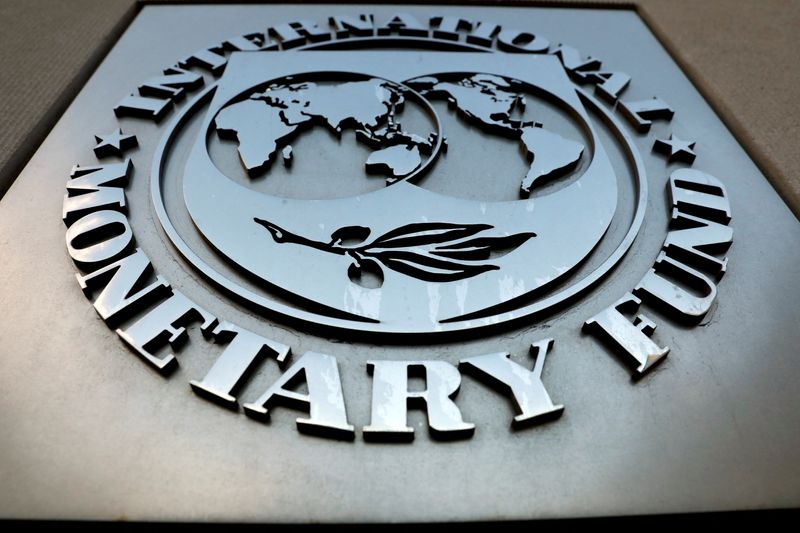(Reuters) - The International Monetary Fund warned on Tuesday of a disorderly repricing in markets, saying global financial stability risks have increased, raising the potential of contagion and spillovers of stress between markets.
The IMF's Global Financial Stability Report, which warned of the risks to markets, came as the Fund also cut its growth outlook in its latest World Economic Outlook.
Here are key indicators of stress and risks the IMF sees to financial stability:
* LIQUIDITY
Deteriorating market liquidity conditions may pose
risks to financial stability, the IMF said. The recent dramatic stress in the UK gilts market shows how sudden price moves combined with forced selling and deleveraging can lead to disorderly conditions that could threaten broader market functioning and stability, the IMF said.
* CURRENCY SWAPS
International short-term dollar funding markets have begun to show signs of concern with a widening of the cross-currency basis swap spreads, a proxy for the marginal cost of offshore US dollar funding, the IMF said. On the supply side, the increase in FRA-OIS spread (a measure of interbank credit risk) and heightened currency volatility pose a risk of a potential drop in the supply of US dollar funding, the report said.
* EMERGING MARKET BANKS FACE RISKS
Global stress tests for banks show that, under a severe downturn scenario, up to 29 percent of emerging market bank assets could breach minimum capital requirements, the IMF said.
* CORPORATE CREDIT DEFAULT RISK
Corporate credit is facing increased risk of default, with sub-investment-grade firms more exposed to a turn in the credit cycle and deteriorating investor risk appetite, the IMF said.
* OPEN-END INVESTMENT FUNDS
Open-end investment funds are noted as particularly vulnerable. The total value of their net assets has quadrupled since 2008 the IMF said. Open-end funds that offer daily redemptions while holding illiquid assets can amplify the effects of adverse shocks by raising the likelihood of investor runs and asset fire sales, the IMF said.
* EXCHANGE TRADED FUNDS
While exchange traded funds (ETFs) are not vulnerable to investor runs, they can suffer when market liquidity deteriorates and the balance sheets of broker-dealers are constrained so they are limited in their ability to match buyers and sellers, the IMF said. Moreover, leveraged and inverse ETFs can introduce additional volatility in securities markets because of the need to rebalance the leveraged positions at the end of the trading day, the IMF said.
* CHINA PROPERTY SECTOR
The property sector downturn in China means a shock resulting both from property developer defaults and homebuyer boycotts of mortgage payments would have a significant impact on bank balance sheets, the IMF's report said.

* LEVERAGE LOAN MARKET CREDIT CRUNCH
Tighter financial conditions, mounting liquidity strains, and decelerating earnings growth could presage ratings downgrades and eventual defaults and lower returns for collateralized loan obligations (CLO) investors, the IMF said. The underperformance of these investors could lead to a decline in new CLO issuance and a credit crunch in the leveraged loan market, reducing funding available to existing sub-investment-grade firms, it said.